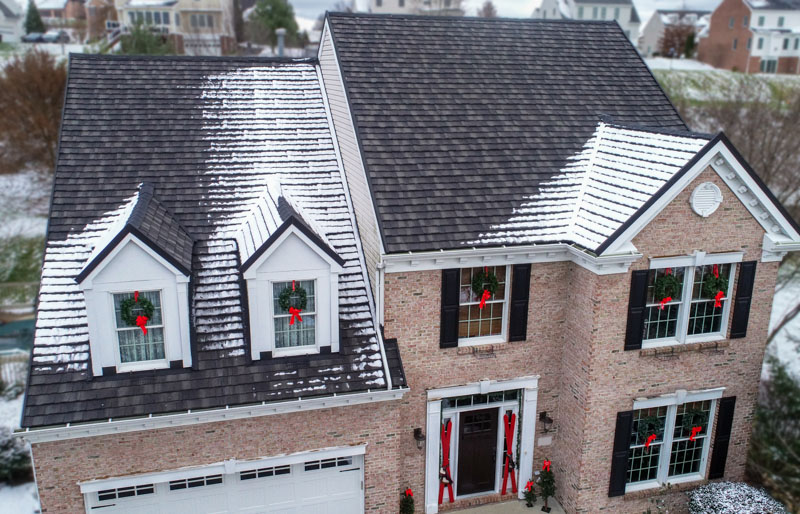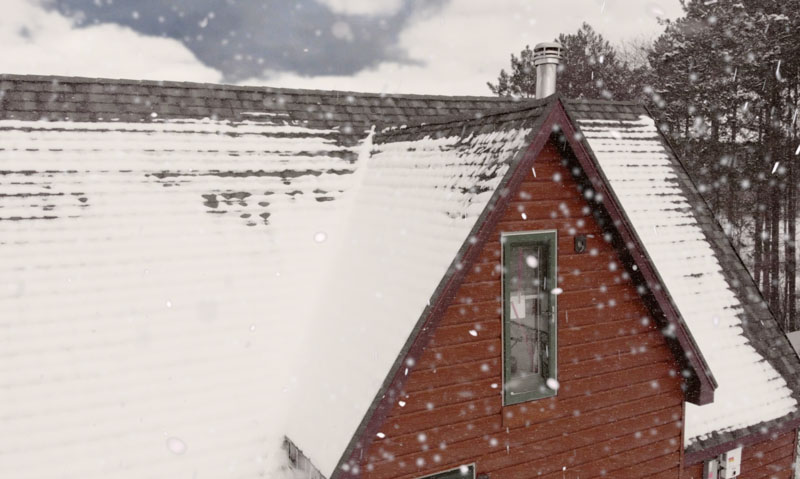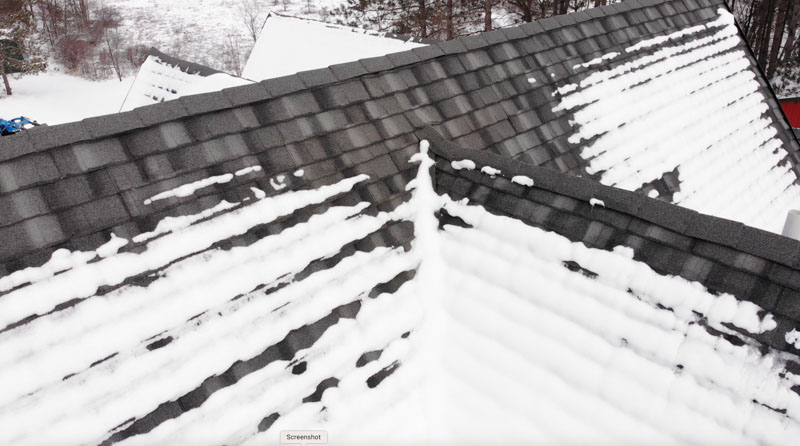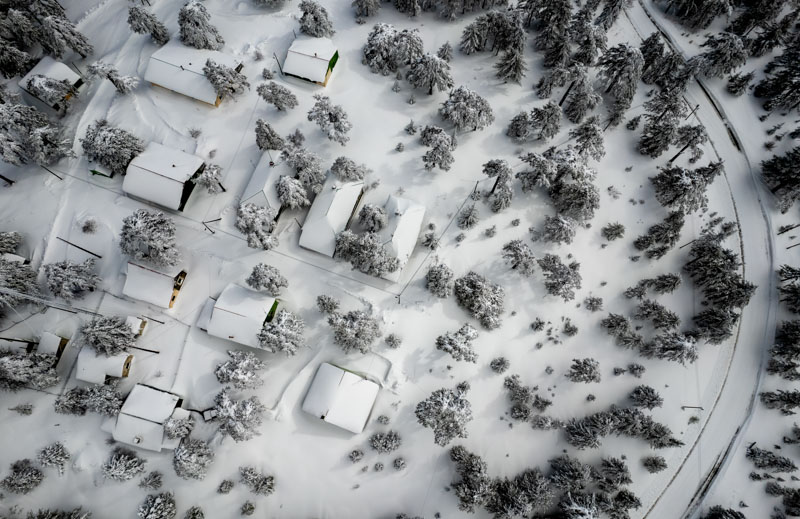As the season changes, so does the necessary roofing maintenance. If you’ve just recently installed a metal roofing system, in particular, you might not know how to approach the unique concerns of winter. If you live in an area with significant snowfall, this can be especially concerning. The last thing you want is to damage your metal roof while attempting to maintain it during harsh weather.
Unsure about the process of shoveling snow from your metal roof or just keeping your roof healthy over the winter months? Here’s a short guide to caring for your metal roof when it is under some of the harshest conditions it will face.
In This Article
Will My Metal Roof Encourage Snow and Ice Buildup?

Surprisingly, many popular residential roofing materials aren’t designed to protect your home from the elements. One of the biggest perks of installing a metal roof is its ability to protect the house from damage due to harsh weather, such as significant snowfall.
Thankfully, this means snow and ice are far less likely to cause problems on your metal roof than other popular roofing materials. Nevertheless, ice dams are a common concern for homeowners, especially those who frequently face heavy snowfall. Minimizing the risk of ice dams can be one of the most stressful parts of winter roofing maintenance, and with a metal roof, much of this anxiety can be avoided.
Ice dams can lead to extensive water damage, which can impact both the inside and outside of your house. Fortunately for you, metal roofs are incredibly durable. As such, it’s considerably less likely that snow and ice (even in larger quantities) will inflict severe damage to your roof or gutters.
With a metal roofing system, frequent shoveling during the winter months typically isn’t going to be necessary due to the lower weight of a metal roofing system, meaning your roof can support a larger accumulation of snow and ice.
What Type of Metal Roof Is Best for Snowy Regions?

If you reside in a snowy area, a metal roof can be a fantastic investment to keep your home safe and reduce the need for maintenance. Still, some metal roofing systems are better than others for protection against snowfall.
Any kind of metal roofing system will help protect against snow and ice damage to some degree. That being said, remember that you’ll need to manage the rate at which snowfall falls from your roof—otherwise, you could be risking damage to the property below. If you live in a region that experiences exceptionally harsh winters with lots of snow, make sure to install a high-quality snow retention system, such as snow guards or heating cables.
Furthermore, steel shingle roofing systems are beneficial due to its concealed fastener system. Thanks to this, the roof fasteners will be protected from ice and snow—otherwise, this snowfall could penetrate the fastener holes (such as those that exist on some standing seam metal roofs), leading to serious leaks that could damage your house.
The Risk of Collapse for Metal Roofing Systems

Considering metal roofs are so durable, collapses are extremely rare—even in instances of heavy snowfall. Still, this doesn’t mean metal roofs are entirely without limitations. Remember that no roofing system is more robust than whatever structure is supporting it. Therefore, structural damage, denting, or collapse can still occur with a metal roof—even if it is rarely seen.
Before installing your metal roof, make sure you understand the snow load your home is designed to bear. Additionally, if the snow you experience is heavier than usual, make sure to keep an eye out for buildup. If you notice that snowfall is building up on your roof, you can use a tool such as a snow rake to remove it quickly. This way, the likelihood of roofing collapse will be next to nothing.
Metal Roofing Is a Top Option for Snowy Climates

Although various climates can benefit from installing a sturdy, highly durable metal roofing system, this material can be particularly useful in snowy regions. If you experience heavy snowfall, it’s important not to allow snow or ice to build up. Whenever snow or ice piles up, your roof is at risk of serious damage; it could also lead to severe leaks, which are often expensive to repair.
While some roofing materials encourage the buildup of snowfall, this isn’t the case for metal roofing. If you’re looking to avoid snow or ice buildup on your roof, make sure to check with your contractor to see what options are available to mitigate the risk of seasonal damages.
